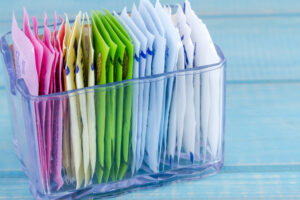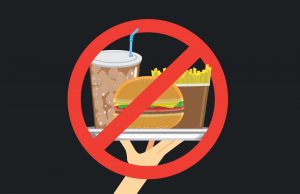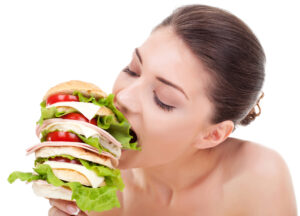Why Is There So Much Confusion About Artificial Sweeteners?
Author: Dr. Stephen Chaney
 When artificial sweeteners were first introduced over 100 years ago, we were promised they would end obesity. We didn’t have to change our diets. We could just substitute calorie-free artificial sweeteners for sugar in all our favorite foods.
When artificial sweeteners were first introduced over 100 years ago, we were promised they would end obesity. We didn’t have to change our diets. We could just substitute calorie-free artificial sweeteners for sugar in all our favorite foods.
Since then, both consumption of artificial sweeteners and obesity have skyrocketed in this country. For example, in just the past 20 years:
- The consumption of artificial sweeteners has increased by 54%, and…
- The percentage of obese Americans has increased by 41%.
Today, over 40% of Americans are obese, and almost 10% of Americans are severely obese. That is a 4-fold increase since 1960!
Clearly, something isn’t working. Artificial sweeteners are not the magic solution we once thought they would be.
However, as I have told you before, association does not prove causation. Therefore, two important questions are:
- Are we consuming more artificially sweetened foods and drinks because more of us have become obese, or…
2) Do artificial sweeteners cause obesity?
Unfortunately, hundreds of clinical studies on this topic have not provided a definitive answer. For example, when we look at studies on diet sodas:
When the studies are tightly controlled by dietitians so that the people consuming diet sodas don’t add any extra calories to their diet, the results are exactly as expected. People consuming diet sodas lose weight compared to people drinking regular sodas.
However, the results are different in the real world where you don’t have a dietitian looking over your shoulder. In these studies, diet sodas are just as likely to cause weight gain as regular sodas.
As Barry Popkin, a colleague at the University of North Carolina, put it” “The problem is that we [Americans] are using diet sodas to wash down our Big Macs and fries.” In short, people drinking diet sodas tend to increase their caloric intake by adding other foods to their diet. Even worse, the added foods aren’t usually fruits and vegetables. They are highly processed junk foods.
using diet sodas to wash down our Big Macs and fries.” In short, people drinking diet sodas tend to increase their caloric intake by adding other foods to their diet. Even worse, the added foods aren’t usually fruits and vegetables. They are highly processed junk foods.
In other words, the suspicion is that artificial sweeteners may cause you to overeat. Various mechanisms for this effect have been proposed. For example, it has been proposed that artificial sweeteners may:
- Increase your appetite.
- Interfere with blood sugar control.
- Increase your cravings for sweets.
- Alter your gut bacteria.
Unfortunately, clinical studies designed to test these hypotheses have produced inconsistent results. So, we are left with the question:
3) Why are studies on artificial sweeteners so confusing?
A recent clinical study (AG Yunker et al, JAMA Network Open, 4(9):e2126313, 2021) sheds light on all 3 of these important questions.
How Was This Study Done?
 This study was called the “Brain Response to Sugar” study. It was designed to test the hypothesis that previous studies of artificial sweeteners may have provided misleading results because they didn’t account for the sex and BMI (a measure of obesity) of the study participants.
This study was called the “Brain Response to Sugar” study. It was designed to test the hypothesis that previous studies of artificial sweeteners may have provided misleading results because they didn’t account for the sex and BMI (a measure of obesity) of the study participants.
Many previous studies had primarily enrolled male, ideal weight participants. This study hypothesized that the response to artificial sweeteners might be different in female, overweight participants.
This study recruited 76 participants from the Southern California area between July 2016 and March 2020, when recruitment was halted because of the COVID-19 pandemic. The characteristics of the participants were:
- 18-35 years old.
- Weight stable for at least 3 months before the study.
- Not taking medications and no history of eating disorders, diabetes, or other diseases.
- 42% male and 58% female.
- 37% healthy weight, 32% overweight, and 31% obese.
- 40% included artificial sweeteners in their diet prior to the study, 60% did not.
The study was what is called a “within-participant randomized crossover trial”. Simply put, this means that each participant served as their own control. Here is how it worked:
- Each participant came to the Dornsife Cognitive Neuroimaging Center three times. They arrived at the testing center at 8 AM after an overnight fast.
-
- They drank either 75 grams of sucrose in 300 mL of water, enough sucralose in 300 mL of water to provide equivalent sweetness, or 300 mL of plain water at the beginning of each visit. The order in which the drinks were administered was randomized.
- At 20 minutes after each drink, the participants were placed into an MRI machine shown various food and non-food images.
-
- Four high-calorie food images (2 sweet and 2 savory), 4 low-calorie food images, and 4 non-food images were shown to the participants in random order.
-
- As the images were shown, the MRI scanned the medial frontal cortex and orbitofrontal cortex, regions of the brain associated with appetite and hunger. Specifically, these are regions of the brain that affect:
-
-
- Conditioned motivation to eat.
-
-
-
- The reward value associated with food cues.
-
-
-
- In addition, greater food cue reactivity in these regions of the brain has been shown to be associated with obesity.
-
- At 125 minutes after each drink, the participants were allowed to select their meal from a buffet table, and the calories consumed was recorded.
Can Artificial Sweeteners Make You Hungry?
 Here are the results of the study:
Here are the results of the study:
- There was no overall difference in brain activity in the regions of the brain associated with appetite, hunger, and desire for high-calorie foods following the sucralose and sucrose drinks. However:
-
- For participants who were obese, high-calorie savory food images elicited greater brain activity in participants who had consumed sucralose than in participants who had consumed sucrose drinks. This difference was not seen in patients who were normal weight or overweight.
-
- For female participants, high-calorie sweet and savory food images elicited greater brain activity in participants who had consumed sucralose than in participants who had consumed sucrose drinks. This difference was not seen in male patients.
-
- These differences were not small. The effect of sucralose on brain activity in regions that control appetite and hunger was several-fold greater than the effect sucrose on brain activity in these regions.
-
- And as you might expect, the different response to sucralose and sucrose was greatest for women who were obese.
- Participants consumed more calories at the buffet table after the sucralose drink than after the sucrose drink.
-
- There was no significant effect of weight on the differential response to sucralose and sucrose. However:
-
- The differential response to sucralose and sucrose was larger for female participants than for the whole group.
- These results are consistent with previous studies suggesting that appetite responses to food cues might be greater in females and individuals with obesity. However, this was the first study designed to directly test this hypothesis.
The authors concluded, “Our findings indicate that female individuals and those who are obese, and especially female individuals with obesity, might be particularly sensitive to greater neural responsivity elicited by sucralose compared to sucrose consumption. This study highlights the need to consider individual biologic factors in research studies and potentially dietary recommendations regarding the use and efficacy of non-nutritive sweeteners [artificial sweeteners] for body weight management.”
[Note: You may have noticed that the authors extrapolated from their data on sucralose to all artificial sweeteners. Is this extrapolation valid? The short answer is, “We don’t know”. Most of the mechanistic studies have been done with sucralose, but some studies suggest these same effects may be seen with other artificial sweeteners.]
Why Is There So Much Confusion About Artificial Sweeteners?
 It seems like a “no brainer” that zero calorie drinks and reduced calorie foods would reduce weight gain and promote weight loss. But that just doesn’t seem to happen in the real world. Why is that?
It seems like a “no brainer” that zero calorie drinks and reduced calorie foods would reduce weight gain and promote weight loss. But that just doesn’t seem to happen in the real world. Why is that?
- Is it psychological? Do we feel so virtuous about consuming artificially sweetened foods and drinks that we allow ourselves to splurge on high-calorie junk foods?
- Or is it physiological? Do artificial sweeteners increase our appetite for high-calorie junk foods?
Unfortunately, clinical studies have not been much help. Some studies suggest that artificial sweeteners increase our appetite for high-calorie foods, while others suggest they don’t. Clinical studies are supposed to resolve questions like these. Why have they been so confusing?
Part of the problem is that some of the studies on artificial sweeteners have been too small and/or too poorly designed to provide clear-cut answers. However, even well-designed clinical studies have two fundamental flaws:
- Clinical studies are based on averages. They assume everyone is the same.
-
- This study, and others like it, show the flaw in that assumption.
-
-
- It appears that artificial sweeteners affect the appetite for high calorie foods more in individuals who are obese than in individuals who are normal weight or slightly overweight.
-
-
-
- Artificial sweeteners also affect the appetite for high calorie foods more for females than for males.
-
-
-
- What about age and ethnicity? Is the effect of artificial sweeteners on the appetite for high calorie foods affected by age or ethnicity? No one knows.
-
-
-
- What about genetics? Is the effect of artificial sweeteners dependent on our genetic background? No one knows.
-
-
-
- What about our microbiome? Again, no one knows.
-
- Gold standard clinical studies only change one variable at a time. In studies of artificial sweeteners, the variable is artificial sweetener versus sugar. But we don’t eat just artificial sweeteners or sugar. We eat foods containing artificial sweeteners or sugar. Do the foods we eat alter the effect of the artificial sweeteners on appetite?
-
- One recent study) suggests they might. It found that consumption of sucralose plus easily digested carbohydrate (such as might be found in artificially sweetened junk foods) may increase the craving for sweets more than consumption of either sucralose or sucrose alone.
What Does This Study Mean For You?
 Simply put, the initial promise of artificial sweeteners as a solution to the obesity epidemic and the alarming increase in diabetes has not been borne out by either clinical studies or real-life experience.
Simply put, the initial promise of artificial sweeteners as a solution to the obesity epidemic and the alarming increase in diabetes has not been borne out by either clinical studies or real-life experience.
And I have not addressed the potential risks of artificial sweeteners in this article. However, in my opinion, something that has potential risks, no matter how small, and no proven benefit is something to avoid.
But don’t take my word for it. As I reported in a previous “Health Tips From the Professor” article, an international consortium of scientists recently reviewed all the pertinent literature and published a position paper on whether artificially sweetened beverages were of value in responding to the global obesity crisis. They concluded:
- “In summary, the available evidence…does not consistently demonstrate that artificially-sweetened beverages are effective for weight loss or preventing metabolic abnormalities [pre-diabetes and diabetes]. Evidence on the impact of artificially-sweetened beverages on child health is even more limited and inconclusive than in adults.”
- “The absence of evidence to support the role of artificially sweetened beverages in preventing weight gain and the lack of studies on their long-term effects on health strengthen the position that artificially-sweetened beverages should not be promoted as part of a healthy diet.”
The Bottom Line
When artificial sweeteners were first introduced over 100 years ago, we were promised they would end obesity. We didn’t have to change our diets. We could just substitute calorie-free artificial sweeteners for sugar in all our favorite foods.
Since then, both consumption of artificial sweeteners and obesity have skyrocketed in this country. Clearly, something isn’t working. Artificial sweeteners are not the magic solution we once thought they would be.
In recent years some studies have suggested that the reason that artificial sweeteners have failed us is that they stimulate our appetite for high calorie foods. However, this idea has been controversial. Some studies have supported it. Others have not.
Why have the clinical studies been so confusing? The study I describe in this article was designed to test the hypothesis that previous studies of artificial sweeteners may have provided misleading results because they didn’t account for the sex and BMI (a measure of obesity) of the study participants.
Many previous studies had primarily enrolled male, ideal weight participants. This study hypothesized that the response to artificial sweeteners might be different in female, overweight participants. The study found:
- There was no overall difference in brain activity in the regions of the brain associated with appetite, hunger, and desire for high-calorie foods following consumption of drinks containing sucralose or sucrose. However:
-
- For participants who were obese, high-calorie savory food images elicited greater brain activity in participants who had consumed sucralose than in participants who had consumed sucrose drinks.
-
- For female participants, high-calorie sweet and savory food images elicited greater brain activity in participants who had consumed sucralose than in participants who had consumed sucrose drinks.
-
- These differences were not small. The effect of sucralose on brain activity in regions that control appetite and hunger was several-fold greater than the effect sucrose on brain activity in those regions.
- Participants consumed more calories at the buffet table after the sucralose drink than after the sucrose drink.
-
- The differential response to sucralose and sucrose was larger for female participants than for the whole group.
- These results are consistent with previous studies suggesting that appetite responses to food cues might be greater in females and individuals with obesity. However, this was the first study designed to directly test this hypothesis.
The authors concluded, “Our findings indicate that female individuals and those who are obese, and especially female individuals with obesity, might be particularly sensitive to greater neural responsivity elicited by sucralose compared to sucrose consumption. This study highlights the need to consider individual biologic factors in research studies and potentially dietary recommendations regarding the use and efficacy of non-nutritive sweeteners [eg, artificial sweeteners] for body weight management.”
For more details about this study and what it means for you, read the article above.
These statements have not been evaluated by the Food and Drug Administration. This information is not intended to diagnose, treat, cure, or prevent any disease.
